Team:Oxford/P&P igem europe
From 2014.igem.org
(Difference between revisions)
| (21 intermediate revisions not shown) | |||
| Line 32: | Line 32: | ||
<br><br> | <br><br> | ||
| - | + | We have looked at all european countries that have iGEM teams this year as well as the development of the number of iGEM teams in Europe over the past years. | |
<br><br> | <br><br> | ||
| - | Our team has also founded the | + | Our team has also founded the <a href="http://www.facebook.com/europeigem"> iGEM Europe Facebook </a> page this year: to help facilitate communication and collaboration between European iGEM teams. The page has over 100 likes and has been useful as a platform for exchange of ideas, help, and inspiration between teams. We hope it will continue to do so in years to come! |
<br><br> | <br><br> | ||
| Line 44: | Line 44: | ||
<h1blue2>iGEM and Language</h1blue2> | <h1blue2>iGEM and Language</h1blue2> | ||
<br><br> | <br><br> | ||
| - | We've also been working with the Imperial iGEM team, who have been doing some interesting research into languages and iGEM, an aspect which closely relates to our own interest in European teams. Check out | + | We've also been working with the Imperial iGEM team, who have been doing some interesting research into languages and iGEM, an aspect which closely relates to our own interest in European teams. Teaching of English (identified by ICL as the lingua academica of science) is particularly strong in European countries - perhaps language is a contributing factor to the success of European teams at iGEM, as revealed by our statistical analysis (below). |
| + | <br><br>Check out the work of ICL on <a href="https://2014.igem.org/Team:Imperial/The_i_in_iGEM">. | ||
| + | iGEM and language</a>. | ||
<br><br> | <br><br> | ||
</div> | </div> | ||
| Line 99: | Line 101: | ||
<br><br><br><br><br> | <br><br><br><br><br> | ||
<br><br><br><br><br> | <br><br><br><br><br> | ||
| - | + | <br><br><br> | |
<div class="row"> | <div class="row"> | ||
| Line 114: | Line 116: | ||
<a href="#show6" class="show" id="show6"> | <a href="#show6" class="show" id="show6"> | ||
| - | <img src="https://static.igem.org/mediawiki/2014/ | + | <img src="https://static.igem.org/mediawiki/2014/f/fb/OXEUSlide6.JPG" style="float:left;position:relative;width:23%;margin-left:2%;" /> |
</a> | </a> | ||
<a href="#hide6" class="hide" id="hide6"> | <a href="#hide6" class="hide" id="hide6"> | ||
| - | <img src="https://static.igem.org/mediawiki/2014/ | + | <img src="https://static.igem.org/mediawiki/2014/f/fb/OXEUSlide6.JPG" style="float:left;position:relative; width:90%;margin-left:5%;margin-right:5%" /> |
</a> | </a> | ||
</div> | </div> | ||
| Line 126: | Line 128: | ||
<a href="#show7" class="show" id="show7"> | <a href="#show7" class="show" id="show7"> | ||
| - | <img src="https://static.igem.org/mediawiki/2014/ | + | <img src="https://static.igem.org/mediawiki/2014/8/8c/OXEUSlide7.JPG" style="float:left;position:relative;width:23%;margin-left:2%;" /> |
</a> | </a> | ||
<a href="#hide7" class="hide" id="hide7"> | <a href="#hide7" class="hide" id="hide7"> | ||
| - | <img src="https://static.igem.org/mediawiki/2014/ | + | <img src="https://static.igem.org/mediawiki/2014/8/8c/OXEUSlide7.JPG" style="float:left;position:relative; width:90%;margin-left:5%;margin-right:5%" /> |
</a> | </a> | ||
</div> | </div> | ||
| Line 137: | Line 139: | ||
<a href="#show8" class="show" id="show8"> | <a href="#show8" class="show" id="show8"> | ||
| - | <img src="https://static.igem.org/mediawiki/2014/ | + | <img src="https://static.igem.org/mediawiki/2014/6/66/OXEU_Slide8.JPG" style="float:left;position:relative;width:23%;margin-left:2%;" /> |
</a> | </a> | ||
<a href="#hide8" class="hide" id="hide8"> | <a href="#hide8" class="hide" id="hide8"> | ||
| - | <img src="https://static.igem.org/mediawiki/2014/ | + | <img src="https://static.igem.org/mediawiki/2014/6/66/OXEU_Slide8.JPG" style="float:left;position:relative; width:90%;margin-left:5%;margin-right:5%" /> |
</a> | </a> | ||
</div> | </div> | ||
| + | <br><br><br><br><br><br><br> | ||
| - | + | ||
| + | Oxford iGEM 2014 | ||
| - | |||
| - | |||
| - | |||
| - | |||
| - | |||
| - | |||
| - | |||
</div> | </div> | ||
| - | <div | + | <div style=" border-bottom-left-radius:10px;border-radius:10px; padding-left:10px;padding-right:10px;min-width:300px;margin-top:15px;"> |
| - | + | <h1blue2>References</h1blue2> | |
| - | + | ||
| - | + | ||
| - | + | ||
| - | + | ||
| - | + | ||
| - | + | ||
| - | < | + | |
| - | </ | + | |
<br><br> | <br><br> | ||
| - | + | [1] Number of iGEM teams https://igem.org/Team_List?year=2006:<br> | |
| + | https://igem.org/Team_List?year=2007; | ||
| + | https://igem.org/Team_List?year=2008; | ||
| + | https://igem.org/Team_List?year=2009; | ||
| + | https://igem.org/Team_List?year=2010; | ||
| + | https://igem.org/Team_List?year=2011; | ||
| + | https://igem.org/Team_List?year=2012; | ||
| + | https://igem.org/Team_List?year=2013. | ||
| + | <br><br> | ||
| + | [2] Populations of countries mentioned: | ||
| + | http://www.nationsonline.org/oneworld/population-by-country.htm.<br> | ||
| + | <br> | ||
| + | [3] Success of European iGEM teams: | ||
| + | http://en.wikipedia.org/wiki/International_Genetically_Engineered_Machine.<br> | ||
| - | |||
| - | |||
| - | |||
| - | |||
| - | |||
<br><br> | <br><br> | ||
</div> | </div> | ||
Latest revision as of 03:02, 18 October 2014
 "
"









































































